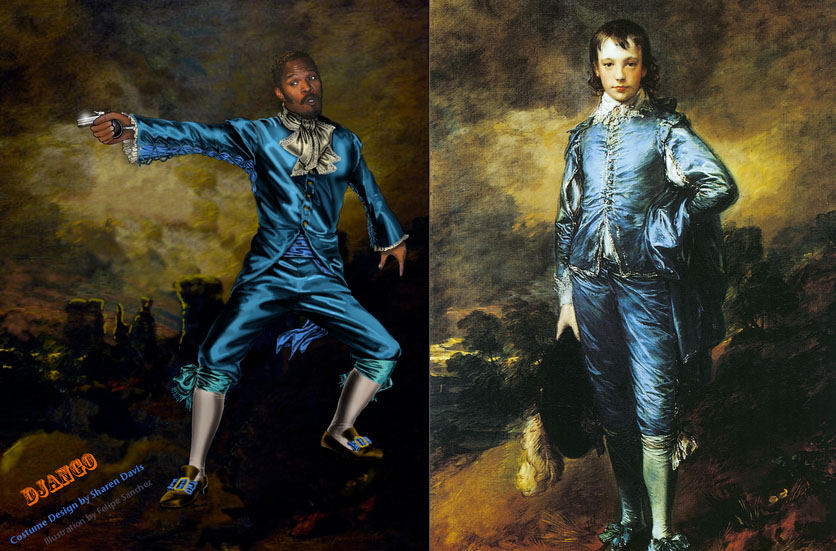
Image Credit: Vanity Fair
Although it’s been two months since its initial release, the internet is still abuzz with social critique of Tarantino’s newest film Django Unchained. Roxane Gay, a staff writer for Buzzfeed, argues that rather than encouraging a national discourse on slavery, slavery is instead “the movie’s easily exploited backdrop.” The movie functions instead as “a white man’s slavery revenge fantasy, and one in which white people figure heavily and where black people are, largely, incidental.” Finally, she concludes, “Django Unchained isn’t about a black man reclaiming his freedom. It’s about a white man working through his own racial demons and white guilt.”
Many of Django’s critics couch their arguments in similar terms—that is, that while Tarantino claims to reignite a discourse on slavery in Django Unchained, he in fact privileges genre over content in a way that dangerously decontextualizes our most central national trauma. I have argued in an early post that privileging medium over content can function as a form of censorship. Here, I want to discuss how the same aesthetice practice can simultaneously suggest and defer engagement with tragedy and trauma.
Recent comments
2 years 29 weeks ago
2 years 44 weeks ago
2 years 44 weeks ago
2 years 50 weeks ago
3 years 4 weeks ago
3 years 4 weeks ago
3 years 4 weeks ago
3 years 6 weeks ago
3 years 6 weeks ago
3 years 6 weeks ago